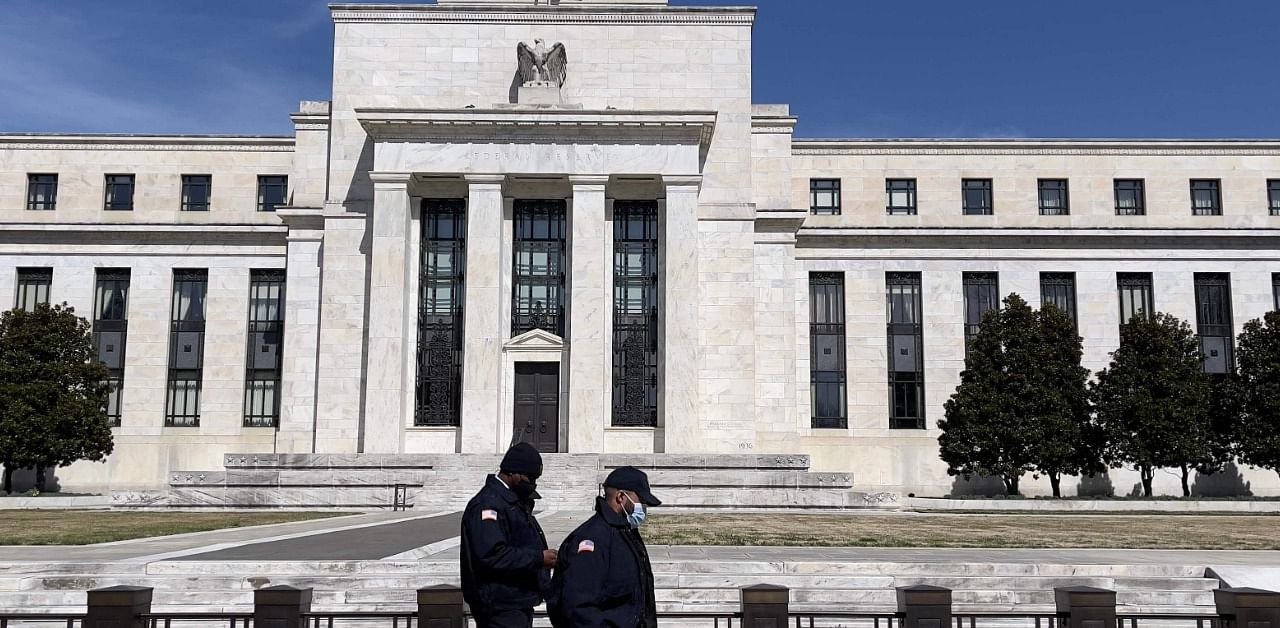
The Federal Reserve has vowed it won't raise its benchmark lending rate anytime soon, but US economists in a survey released Monday believe the central bank could be forced to enact a hike as soon as next year.
The National Association for Business Economics (NABE) reported 46 per cent of participants surveyed to see the central bank's policy-setting Federal Open Market Committee (FOMC) raising its lending rate in 2022, while 28 per cent think they'll up it in 2023.
Only 12 per cent think the rate will be changed after that year, despite most officials at the conclusion of the FOMC's two-day meeting last week saying that they don't expect to raise it though at least 2023.
The NABE survey is the latest sign of rising expectations for inflation after Congress rolled out massive stimulus measures over the past year to keep the world's largest economy afloat as Covid-19 disrupted business.
President Joe Biden earlier this month signed the $1.9 trillion American Rescue Plan, which was the third major relief measure passed during the pandemic and drew protests from some economists who said it could overstimulate the economy and drive up prices.
The Federal Reserve one year ago slashed its benchmark lending rate to zero, then months later said it would keep it there until inflation hit a sustained level of 2.0 per cent -- a pledge Fed Chair Jerome Powell reiterated this week at the conclusion of the FOMC meeting.
However, economists are skeptical. The NABE survey reports 61 per cent of respondents believe inflation risks are greater than in the past two decades, while 37 per cent disagree.
The survey was conducted while Biden's relief plan was under consideration in Congress but before it was approved, and respondents were split over the government's overall fiscal response to the pandemic.
Thirty-three per cent of respondents said the government's response was adequate, a slight decrease from the previous survey in August 2020, while 37 per cent said it was insufficient, also down slightly from the previous survey. Eighteen per cent said it was excessive, up slightly from August.
The United States has spent upwards of $5 trillion on relief measures during the pandemic. The Congressional Budget Office forecasts the budget deficit will reach its second-highest level since World War II this year, and the national debt will hit 102.3 per cent of GDP.
The NABE said 88 per cent of respondents were concerned to varying degrees about the debt level, with only 12 per cent of respondents unconcerned.